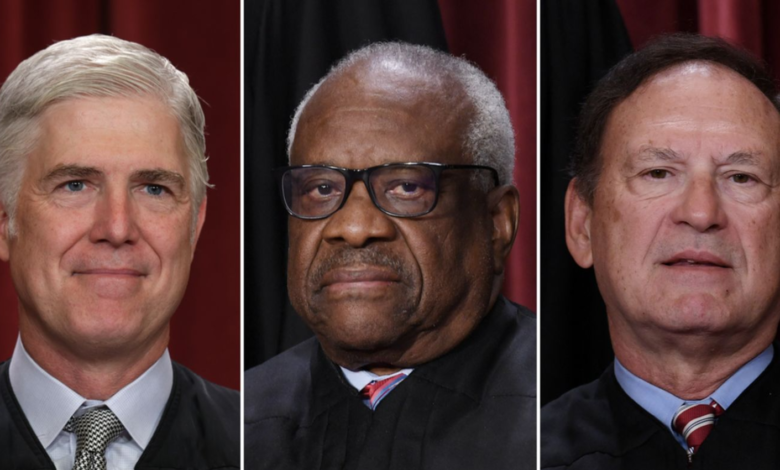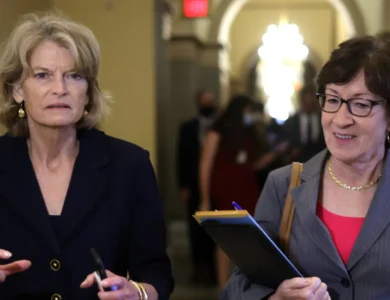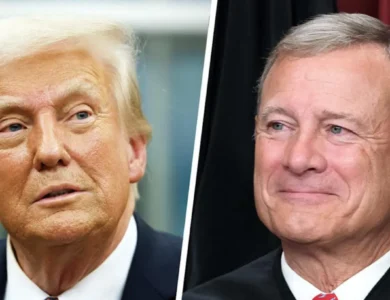SCOTUS Rules In Favor Of Arizona Copper Mine, Denies Hearing Apache Appeal

In a landmark decision, the U.S. Supreme Court has cleared the path for the development of the Resolution Copper mine in Arizona, a project poised to bolster America’s economic strength and resource independence. This move underscores the commitment of President Donald Trump and Republican leaders to prioritize national interests, economic growth, and energy security.
The court denied an appeal from Apache Stronghold, a nonprofit group that said the religious rights of its members were being violated because Oak Flat would be destroyed if the copper mine went forward, NBC News reported.
Oak Flat is where the San Carlos Apache tribe of Arizona worships, Reuters reported.
Read more: AG Bondi Reveals Chilling Details About Rogue Judge Harboring Illegal Migrants
The mine was first approved in 2014 by former President Obama and was supported by President Trump in his first term, before it was reversed by former President Joe Biden.
The decision to uphold the Ninth Circuit’s ruling was met with celebration from Resolution Copper.
“We are pleased that the Ninth Circuit’s decision will stand,” General Manager Vicky Peacey said. “The Resolution Copper mine is vital to securing America’s energy future, infrastructure needs, and national defense with a domestic supply of copper and other critical minerals. We are encouraged by the significant community support for the project, which has the potential to become one of the largest copper mines in America, add $1 billion a year to Arizona’s economy, and create thousands of local jobs in a region where mining has played an important role for more than a century. More than a decade of extensive consultation and collaboration with Native American Tribes and local communities has directly led to major changes to the mining plan to preserve and reduce potential impacts on Tribal, social, and cultural interests, and this ongoing dialogue will continue to shape the project.”
Read more: Biden Family Tragedy – Photo of Joe Goes Viral…
The decision was also welcomed by the National Mining Association who said that 40 billion pounds of copper could be produced from the site.
“With today’s Supreme Court ruling, Congress, the executive & judicial branches all agree that the Resolution Copper land exchange should proceed. The mine holds the potential to produce 40 billion lbs of copper over 40 yrs. After 10+ years of extensive collaboration with Native tribes & local communities — resulting in major plan changes — it’s time to move forward for US jobs, & national & supply chain security,” it said.
But even after the Supreme Court’s decision, Apache Stronghold is not quitting and asking Congress to take action.
Read more: John Fetterman BOMBSHELL – Could Be OUT Of Senate
“While this decision is a heavy blow, our struggle is far from over. We urge Congress to take decisive action to stop this injustice while we press forward in the courts,” senior member Wendsler Nosie Sr. said.
Conservative justices Neil Gorsuch and Clarence Thomas said that they would have heard the case and Gorsuch, who has backed Native American causes in the past, penned a dissenting opinion.
“While this Court enjoys the power to choose which cases it will hear, its decision to shuffle this case off our docket without a full airing is a grievous mistake—one with consequences that threaten to reverberate for generations. Just imagine if the government sought to demolish a historic cathedral on so questionable a chain of legal reasoning. I have no doubt that we would find that case worth our time,” the Justice said in his dissent.
Read more: UH-OH: Secret Supreme Court Plot To THWART Trump Uncovered – This Is INSANE
“Faced with the government’s plan to destroy an ancient site of tribal worship, we owe the Apaches no less. They may live far from Washington, D. C., and their history and religious practices may be unfamiliar to many. But that should make no difference. Popular religious views are easy enough to defend. It is in protecting unpopular religious beliefs that we prove this country’s commitment to . . . religious freedom,” he said.





